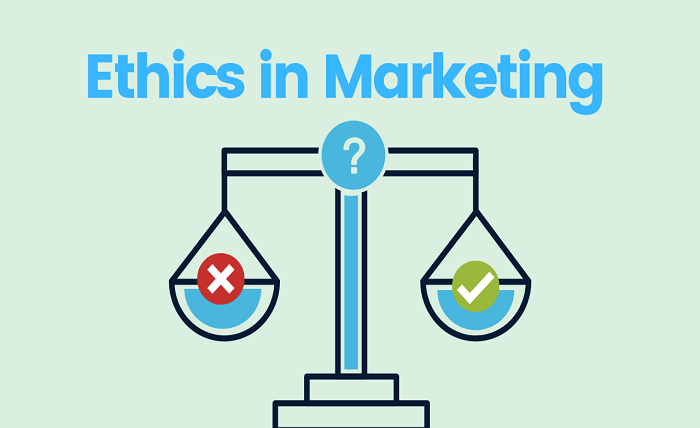Ethical Marketing: Discussing the Importance of Ethical Marketing Practices and Their Impact on Brand Reputation

Businesses these days have become pretty competitive. However, on the other side, you’d also observe that the lines between profit and ethics are becoming increasingly blurred. While the pursuit of profit is a fundamental aspect of any commercial enterprise, there is a growing awareness that ethical marketing practices are equally essential.
Ethical marketing not only reflects a company’s commitment to doing the right thing but also plays a pivotal role in shaping brand reputation. Today, we’ll explore the significance of ethical marketing and its profound impact on how a brand is perceived.
The Essence of Ethical Marketing
Ethical marketing revolves around the principles of honesty, transparency, and responsibility. It is rooted in a commitment to doing business in a manner that is fair, just, and considerate of the well-being of all stakeholders, including customers, employees, partners, and the wider society. Ethical marketing practices are driven by values and a dedication to adhering to high moral standards in all aspects of marketing and advertising.
The Importance of Ethical Marketing Practices
- Building Trust and Credibility
One of the most crucial aspects of ethical marketing is the trust it fosters with consumers. When a company makes ethical decisions in its marketing strategies, customers are more likely to trust the brand. Trust is the foundation of a strong and enduring customer-brand relationship.
- Attracting and Retaining Customers
Customers are increasingly making buying decisions based on their values. Ethical marketing practices resonate with customers who appreciate brands that align with their own principles. By attracting customers with shared values, ethical marketing can boost customer retention and loyalty.
- Enhancing Brand Reputation
A strong brand reputation is invaluable. Ethical marketing practices contribute significantly to building a positive image for a brand. It highlights the brand’s integrity and dedication to making a positive impact on society, which can result in enhanced brand perception and customer loyalty.
- Mitigating Legal and Reputational Risks
Unethical marketing practices can lead to legal troubles and damage a brand’s reputation irreparably. Ethical marketing helps to mitigate these risks by ensuring that a company operates within legal boundaries and ethical guidelines.
- Competitive Advantage
Ethical marketing can serve as a significant differentiator in a crowded marketplace. Businesses that prioritize ethical practices often stand out from their competitors and can appeal to a growing segment of conscientious consumers.
- Employee Morale and Retention
Employees tend to be more motivated and satisfied when they work for a company that operates ethically. Ethical marketing practices can lead to improved employee morale and higher retention rates.
Ethical Marketing Practices
To implement ethical marketing, consider the following practices:
- Honesty and Transparency
Always be honest and transparent in your marketing communications. Avoid misleading or false advertising, and clearly communicate your brand’s values and practices.Even the tools you use, whether it is for email prospecting or omnichannel communication, ensure that they follow ethical practices and share information with full transparency.
- Sustainability and Social Responsibility
Incorporate sustainable and socially responsible practices into your business operations. Highlight your efforts to support environmental sustainability and contribute to the community.
- Respect for Customer Privacy
Respect customer privacy and data protection. Obtain proper consent for data collection and use and ensure compliance with data protection regulations.
- Avoid Exploitative Practices
Steer clear of exploitative practices, such as price gouging, deceptive pricing, or preying on vulnerable consumers.
- Commitment to Quality
Deliver high-quality products and services. Ethical marketing involves providing value to customers and meeting their expectations.
Conclusion
In the age of information and heightened social awareness, ethical marketing is no longer just an option; it is an imperative. Companies that prioritize ethical marketing practices gain not only short-term customer trust and loyalty but also long-term brand sustainability and reputation. Ethical marketing is a win-win, benefiting both businesses and consumers and fostering a healthier and more responsible marketplace.




